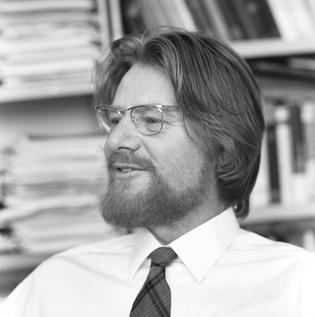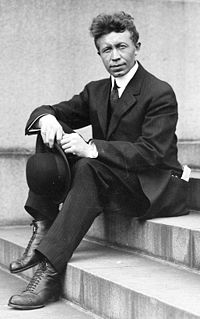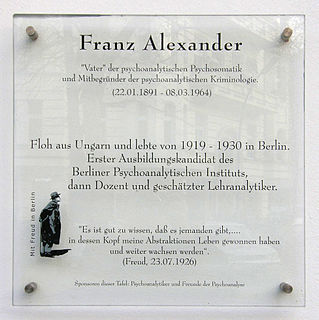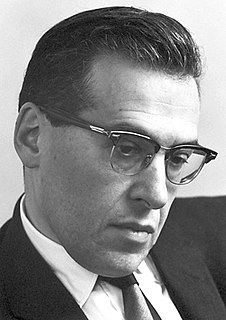A Quote by Warren Weaver
One of the most striking and fundamental things about probability theory is that it leads to an understanding of the otherwise strange fact that events which are individually capricious and unpredictable can, when treated en masse, lead to very stable average performances.
Related Quotes
The concept of 'measurement' becomes so fuzzy on reflection that it is quite surprising to have it appearing in physical theory at the most fundamental level ... does not any analysis of measurement require concepts more fundamental than measurement? And should not the fundamental theory be about these more fundamental concepts?
I believe the calculation of the quantity of probability might be improved to a very useful and pleasant speculation, and applied to a great many events which are accidental, besides those of games; only these cases would be infinitely more confused, as depending on chances which the most part of men are ignorant of.
To construct a scientific theory from the data and to be able to recognize that it is a reasonable theory is possible only if there are some very sharp restrictive principles that lead you to go in one direction and not in another direction. Otherwise, you wouldn't have science at all, merely randomly chosen hypotheses.
In these researches I followed the principles of the experimental method that we have established, i.e., that, in presence of a well-noted, new fact which contradicts a theory, instead of keeping the theory and abandoning the fact, I should keep and study the fact, and I hastened to give up the theory.
It is a remarkable fact that the second law of thermodynamics has played in the history of science a fundamental role far beyond its original scope. Suffice it to mention Boltzmann's work on kinetic theory, Planck's discovery of quantum theory or Einstein's theory of spontaneous emission, which were all based on the second law of thermodynamics.
In fact, the science of thermodynamics began with an analysis, by the great engineer Sadi Carnot, of the problem of how to build the best and most efficient engine, and this constitutes one of the few famous cases in which engineering has contributed to fundamental physical theory. Another example that comes to mind is the more recent analysis of information theory by Claude Shannon. These two analyses, incidentally, turn out to be closely related.
Is the purpose of theoretical physics to be no more than a cataloging of all the things that can happen when particles interact with each other and seperate? Or is it to be an understanding at a deeper level in which there are things that are not directly observable (as the underlying quantized fields are) but in terms of which we shall have a more fundamental understanding?



































